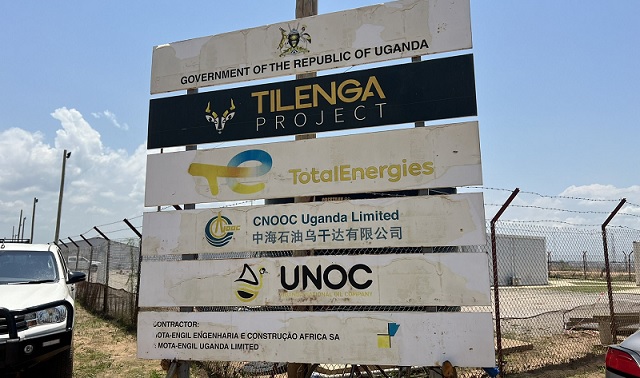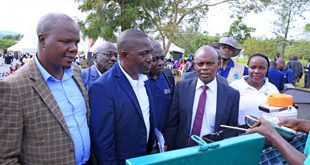
Kampala, Uganda | THE INDEPENDENT | Subcontractors in the oil and gas sectors have been urged to ensure monthly contributions to the National Social Security fund.
It is emerging that some of the companies that got part of the lucrative deals in the oil and gas development at Tilenga and King Fisher Developments in the Albertine Graben are not making their contributions to the NSSF Act as required by law.
The NSSF management had hoped that contributions from the oil and gas sector would increase the number of contributors to the fund. According to information from the Petroleum Authority, the oil and gas sector had generated 12000 jobs by the end of July.
The newly appointed NSSF Managing Director, Patrick Ayota on Tuesday pleaded with employers and the regulator of the oil and gas sector to ensure that NSSF contributions are made.
Ayota and the team recently embarked on an ambitious plan aimed at having at least 50% of the working population as part of the NSSF contributors.
While responding to the NSSF concern, State Minister for Minerals, Peter Lokeris said the defaulting employers must pay all the outstanding payments or face sanctions.
One of the requirements for a company to qualify to be registered on the national supplier database of the oil and gas sector is evidence of contributions to NSSF.
Some of the sub-contracted suppliers to the oil and gas sectors have been complaining about delayed payments from the main contractors. It has also been observed that some of the companies that have taken up jobs in the sectors were in the past not used to a formalized way of running businesses like bookkeeping, tax payments, and mandatory NSSF contributions.
Lokeris issued a six-month ultimatum to all companies operating in the energy, minerals, oil, and gas sectors to clear all the contributions to the NSSF.
“Tasks like registering employers and employees and updating staff cooperation must be accomplished during this interval, failing which sanctions will be imposed,” the minister emphasized.
As per the amended NSSF act, every employer, irrespective of the number of employees, is required to contribute towards their workforce, unlike in the previous law, which only considered employers with five or more employees.
Data from the Petroleum Authority of Uganda (PAU) reveals that by June 2023, over 1,223 companies have been contracted for operations within the oil and gas sector’s supply and value chains. These companies employ approximately 12,949 workers, with Ugandans comprising 94 percent of the workforce.
Penina Ahebwa, the PAU Director for National Content and Monitoring, revealed that although contracts are currently held by 1,223 companies, the sector’s database has a total of 2,700 registered companies, out of which 2,151 are of Ugandan origin.
She mentioned that the sector has several compliance concerns requiring attention from responsible agencies like NSSF.
“We conducted labor audits in February, and the outcomes were less than favorable, particularly in relation to contributions. Employees have urged us to ensure that these stakeholders fulfill their contribution obligations. It’s an area that warrants deeper exploration to enhance our performance,” she expounded.
Based on the findings of the February survey, sector-wide compliance stood at 78 percent. Betty Amongi, the Minister for Labor and Social Development, says that there is a need for heightened vigor to achieve comprehensive compliance within this highly formal sector.
“I’m pleased to note that the energy, oil, and gas sectors have reported a compliance rate of 78%. While this achievement is noteworthy, we aim to attain a full 100%, necessitating intensified efforts,” she said.
Amongi suggested a unified government strategy involving all relevant entities to help NSSF’s to fulfill its expanded responsibility.”
*****
URN
 The Independent Uganda: You get the Truth we Pay the Price
The Independent Uganda: You get the Truth we Pay the Price


